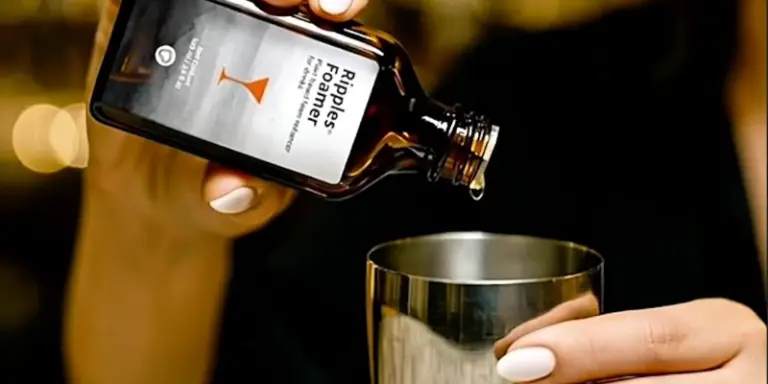Updated January 16, 2020
Every business owner, manager and employee in the hospitality industry knows that online reviews are important. In 2020, this is no great secret, no aha moment waiting to happen. Anyone from the owner of a Courtyard Marriott in a major city to the barista in a local coffee shop knows how critical online reviews are.
“Anyone from the owner of a Courtyard Marriott in a major city to the barista in a local coffee shop knows how critical online reviews are.You’ll be forgiven, however, if you have a purposely vague understanding of just how much they matter and why.”
You’ll be forgiven, however, if you have a purposely vague understanding of just how much they matter and why. If you’ve been doing your best and hoping for the best up until this point, that’s perfectly fine. But it’s time to do better. And you know what? Doing better is going to be pretty easy.
A reliance on reviews
Let’s get right down to it: according to a recent study published by the Cornell Center for Hospitality Research, millennials are expected to represent 50% of all travelers to the USA by the year 2025. Their top trusted sources of reference are either friends/family/co-workers (rated 83 percent trustworthy) or review websites (rated 81 percent trustworthy).
Influencing their social media usage at your place of business is a topic all its own. As for those review sites, here’s your primer on the the sites that matter to your industry, and how you can get great in-store or on-site customer experiences to translate to online reviews.
As for those review sites? Here’s what you need to know about the big ones.
Google Reviews
If the internet had a face, it would be the bright, smiling face of Google. For the vast majority of internet users, either on mobile or desktop, Google is their first stop when searching for a restaurant, bar, hotel, café, bakery and so on. Sometimes it’s their only stop. Google is now considered the number one review site, with nearly 64% of consumers saying they’re likely to check Google reviews before visiting a business, outpacing any other review site.
If you haven’t already used Google My Business to claim your business’s space on Google, you might want to get on that. Not only are Google reviews the first reviews customers see when they search for your business or your type of business, but they can also impact where you land in Google local search results. On average, local businesses have 39 Google reviews. The ones that land in the top three for local Google rankings have 47. When you’re trying to decide which review sites to direct your satisfied customers to, Google is an excellent starting point whether your business serves food or drinks or fluffy pillows for weary travelers.
Yelp
Yelp has been synonymous with online reviews since online reviews rose to prominence. In recent years, it’s true that Google has overtaken Yelp as the most popular review aggregate. However, there are currently over 199 million reviews on Yelp and the site currently boasts a combined 129 million unique monthly visitors through its app and website per month. Just because Google is winning the online review war doesn’t mean that second-place Yelp should be neglected, especially if your business is a restaurant, bar, café, or similar. It’s still a review juggernaut, and it’s still valued and trusted by users ranking in the hundreds of millions. If you’re looking for restaurant marketing ideas, Yelp should be among your top priorities.

The most reviewed industry on Yelp is the restaurant industry, making it imperative that any food-serving establishment is on Yelp and racking up good reviews for potential customers to read.
Yelp also tends to skew a bit more negative than Google reviews do, making it a tougher site to get a good ranking on. Don’t let that scare you away from it. Instead, be strategic with your use of reviews on Yelp. If you see customers having a truly excellent time at your establishment or you’re the recipient of a glowing in-person or online compliment, try to direct those customers to Yelp to leave a review.
TripAdvisor
For hotels, the online review strategy shifts a little compared to what it is for food-serving businesses. Google still reigns supreme for overall reviews, but where the restaurant industry ranks as the most-reviewed industry on Yelp, the hotel industry ranks eighth. Still important, sure, but if you’re going to focus your efforts on a second site after Google, make it TripAdvisor, the number one ranked site for travel and tourism.
The importance of TripAdvisor is one of those hotel industry trends that has been in place for a long time and won’t be going anywhere anytime soon. Good TripAdvisor hotel reviews lead directly to more bookings for hotels. There’s nothing ambiguous about it. A hotel ranked number one for an area on TripAdvisor receives 56% more direct bookings than a hotel ranked 40th. That’s a huge differential, all stemming from a well-managed approach to online reviews as part of your overall approach to hotel marketing ideas.
Of course, the question isn’t whether or not you need or want more of those glowing online reviews. The question is how you get them when your business specializes in in-person interactions. Try these six tips for turning great on-site experiences into great online reviews. Most of these apply both to hotel and restaurant marketing ideas. So check them out and start brainstorming!
#1. Provide customers with an extraordinary experience
Yes, yes. Your place of business already provides an extraordinary experience with its amazing drinks/food/amenities/service. No one is doubting that. Likewise, no one is suggesting you need a magician or a laser show or anything equally ostentatious to try and prompt customers to give you online reviews.
Rather, this word of advice goes back to the true meaning of the word extraordinary: something out of the ordinary. By giving customers a little something unexpected or remarkable, you’re giving them an experience that feels like it was curated or crafted just for them. That, in turn, gives them a reason to get online and sing your praises. And one of the most effective ways to stand out is by creating a customer experience that is personalized.
Take, for example, the Ripple effect on online reviews. A plain jane latte or pint of beer isn’t quite enough to warrant a photo or a post or a review these days, no matter how delicious. It just isn’t exceptional. However, the Ripple Maker is a bev-top media printer that creates high quality pictures, logos or messages on top of hot or cold foam-based beverages. An establishment can print their own photos or logos, or customers can submit photos through an app. It takes just over ten seconds to print. And with that ten seconds, cafes, restaurants, bars and other establishments are able to wow customers with something they haven’t seen before. As you can see in the link above, latte art and pictures on pints are a great motivator to get people talking on review sites. No magic tricks, no flash mobs, no freebies, just a little extra something on what would otherwise be wasted space. This is the direction important restaurant industry trends are heading.
#2. Give them something they can snap
This advice piggybacks on the one above it, but if you can provide customers with something special they can take a photo of and share on the internet, you’re increasing your chances of getting a review. While it may be hard to believe, not all customers leave reviews for altruistic reasons, like helping a business they love or helping other people make decisions. Many do it to increase their own standing as bloggers, influencers or journalists, and a big part of their experience sharing is being able to take and post great photos. Things like an unexpected spray of fresh flowers in a hotel room, creative plating at a restaurant, and even just great lighting can be enough motivation for an influencer’s review (and photo).

#3. Follow up
If you’re in a position to have contact information for your customers like email addresses or mobile numbers, then by all means, use it. While it may be difficult for businesses like coffee shops or bars to gather contact info, hotels will often have booking information for guests, and many restaurants use text to take reservations or to let diners know when their table is ready. Send a brief message requesting a review (with a link to a review site included) while the experience is still fresh to motivate customers to share details about their interactions with your business and employees.
#4. Incentivize them
This is a tip that requires a bit of careful treading, but if you handle it correctly, it can pay dividends for your reputation.
If you have that contact information mentioned in the previous tip, simply add in an entry for a draw or a discount on a return visit to your establishment to provide customers with an incentive to give you a review. If you’re not in a position to gather contact information, have your employees let customers know that if they can show a staff member an online review they’ve left for your establishment, they can fill out a ballot for a prize draw, receive a discount on their purchase, receive a free coffee, or whatever incentive you choose. This can provide just the right push to get them talking about you online, and to get them coming back.
The one thing you need to be careful about with this tip is ensuring you treat all reviews equally. If a customer posts constructive criticism or even negative feedback, they need to be treated the same as the customers who rave about you in their reviews. Without that equity, the incentive can come off as a bribe.
#5. Stay on top of your social
If a customer is looking for the most up-to-date information from a business on things like menus, specials, deals, new products, limited edition offerings, availability, hours and more, they’re going to check social media. With a pinned post or Tweet you can make it clear to all prospective customers that you value what they think of your business, and they’ll keep that in the backs of their minds while they’re staying at, dining in, or otherwise enjoying your establishment. This will make them more likely to write a review afterwards.
It’s also well worth keeping a close eye on your tags on Instagram and other platforms. If a user tags your establishment in a photo or post, do a non-creepy slide into their DMs to tell them how important reviews are to your business and send them a link to a review site to see if they’ll take a moment to share their experience.
#6. Ask!
This tip is so quaint and old-fashioned you might think there must be more to it. There isn’t, though. It’s that simple. A quick, friendly request from a concierge, server, cashier, barista or bartender for a review can be enough to motivate a happy customer to hop online and start spreading the word about their experience.
Be transparent and specific. Tell customers why you want reviews and how they help you, and mention the specific site you would like to target. In our world of big box behemoths and corporate giants, a lot of people are happy to help out small businesses, the places they consider themselves regulars, or awesome spots they stumble upon that surprise them with something exceptional. As your grandpa always told you, it doesn’t hurt to ask.
On-site and online success for HORECA businesses
Online reviews can be a big part of a business’s success in the hospitality industry and they can seem like a big responsibility for the people who are in charge of trying to get those good reviews. It doesn’t have to be a big undertaking, though. With a bit of awareness of the sites that matter most and a few small adjustments to the way you interact with your customers both in-person and online, you can easily be on your way to an excellent online reputation.









